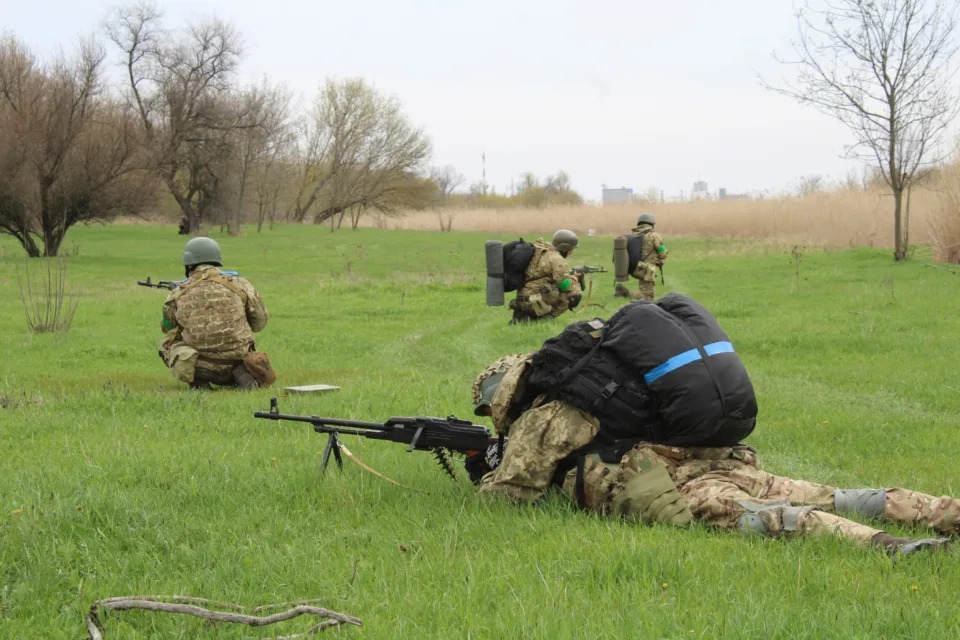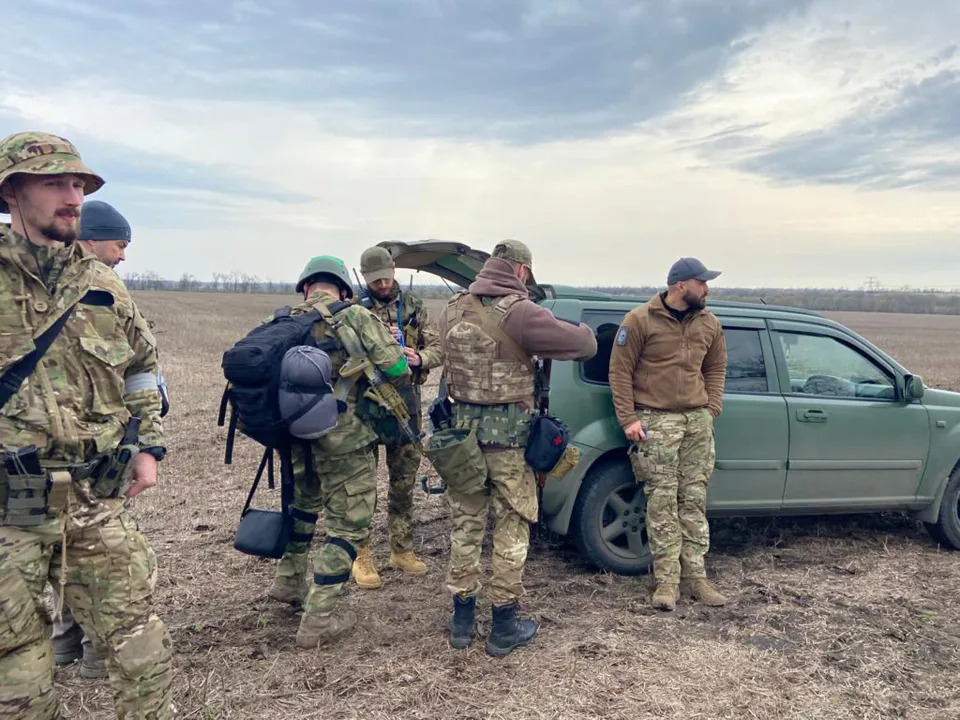NBC News
Retired Marine colonel is teaching Ukrainians how to fight
Ken Dilanian and Didi Martinez – May 3, 2022
Andy Milburn commanded a special operations task force fighting the Islamic State in Iraq.
But the retired Marine colonel says he’s never seen atrocities like the ones committed by the Russians in Ukraine.
“I have seen a lot of devastation and depravity of mankind,” he said. He was in Bucha, outside Kyiv, where the bodies of hundreds of massacred civilians, including children, were found after Russian forces were driven from the city. “Bucha — Bucha was something that really…left me numb for several days … family vehicles, every occupant killed, not just one or two, not just because soldiers were trigger happy but clearly targeted all along that road,” he said. “It just left me with such a feeling of contempt and anger that I never felt for the Islamic State, [that] I never felt for al Qaeda.”
Milburn, who retired in 2019 as deputy commander of U.S. special operations forces in the Middle East, traveled to Ukraine in March intending to cover the conflict as a journalist. But he quickly decided he needed to get involved.
“Just writing about stuff wasn’t really at all satisfying,” said Milburn, who spoke to NBC News from Kyiv.

He formed the Mozart Group, drawing in other former British and American commandos to create a team of special operations veterans that trains and equips Ukrainian soldiers. The name was intended as a counterpoint to the Wagner Group, a notorious Russian mercenary organization. But Milburn says his group does not fight.
“It’s really important that we get guys in who are not adventure-seekers,” he said. “They’re not here to get their gun on, because they have moral clarity. They see a purpose here, and they want to be here for that reason.”
He says he has about 10 to 15 trainers in the country at any one time, all vetted by his contacts in the British and American militaries. All are volunteers.
Although Washington says it is sending billions in military aid, and Ukrainian officials says it has made a critical difference, Milburn says he’s seen little evidence of any reaching the front lines, at least among the Ukrainian special operations forces he is trying to help. Pentagon officials say they don’t have a good handle on what happens to the aid once it reaches Ukraine.
“They’re short of individual first aid kits, they’re short of body armor, they don’t have gloves, they don’t have eye protection, they don’t have ear protection,” Milburn said. “We saw a unit the other day where they evacuated six guys who have ruptured eardrums in one day. You know, I mean, the fixes for these things are easy.”
He’s been impressed, though, by the bravery of Ukrainian soldiers.
Knocking out Russian tanks has become “almost passe here,” he said. “There are guys who will, with a handheld weapon like the Javelin or the NLAW (antitank weapon) or an RPG, knock out two or three T-72s in the course of the day and not even think of it as worth discussing. Things that would get you a silver star or a Navy Cross in the U.S.”

Milburn believes his team has made a difference. In addition to basic tactics, the Mozart Group has trained Ukrainians how to be snipers and how to remove landmines, he says, and they have also removed landmines themselves.
“I can tell you without any proof that I am confident that we have probably saved Ukrainian lives,” he said. “And I hope inflicted more pain on the Russians because of the training that they’ve had.”
But he says the conflict is in a new phase, “a grinding war of attrition … and that’s why it’s so important to tip the balance back in favor of the Ukrainians,” he said. “On one side, you’ve got mass, just a never-ending supply of personnel. The Russians are taking heavy casualties, but they just don’t care.”
Biden administration officials have discouraged Americans from going to fight in Ukraine. In March, Pentagon Press Secretary John Kirby said “we urge them not to go” and that people who wanted to help Ukraine should donate to relief agencies instead. That same month, when asked about would-be military volunteers, White House Deputy Press Secretary Karine Jean-Pierre referred reporters to a State Department travel advisory that said Americans should not go to Ukraine and those there should leave immediately.
